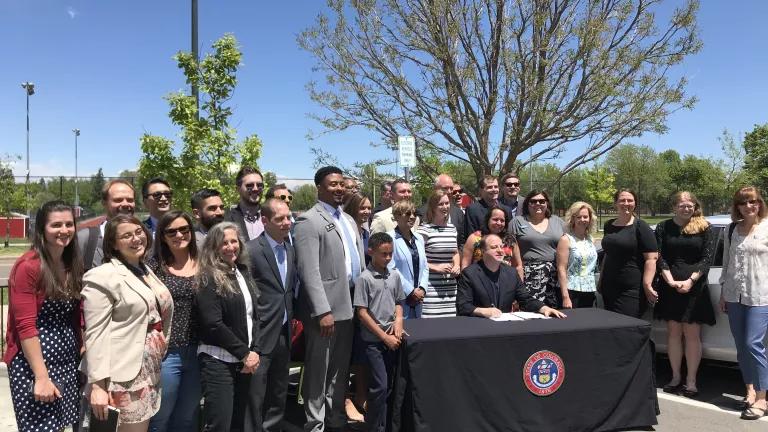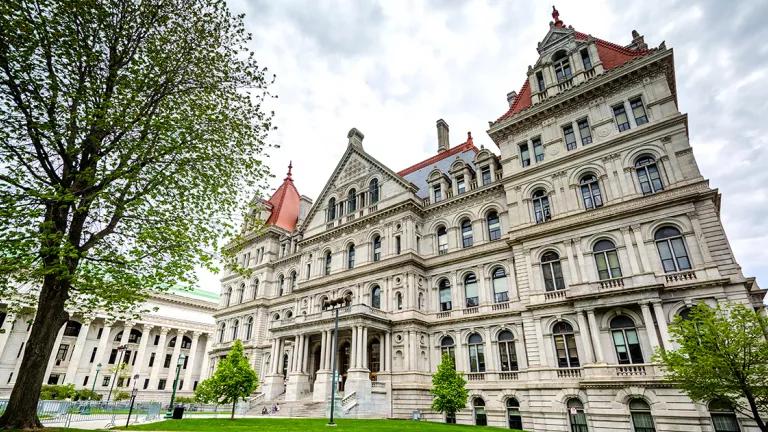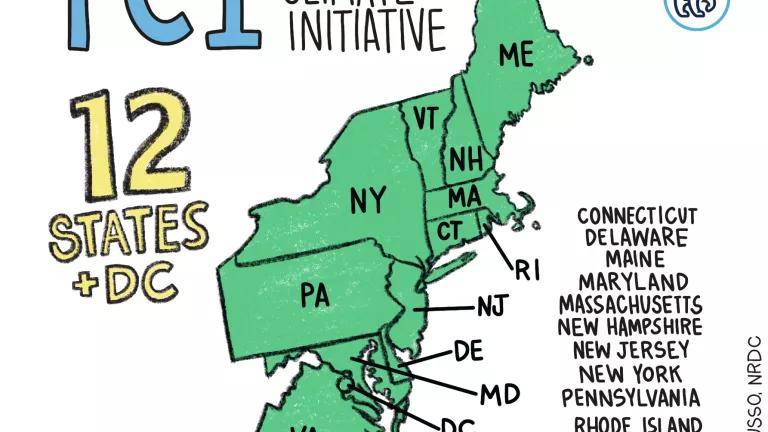2019 in Review: Colorado Leads on Climate and Clean Energy

Part of NRDC's Year-End Series Reviewing 2019 Climate & Clean Energy Developments
2019 was a remarkable year for advancing pro-environment policy in Colorado. From the Governor’s Office to the State Legislature to the Air Quality Control Commission, Colorado leaders made bold commitments, approved ambitious plans, and set the stage for further action in 2020.
Victories from the Governor’s Office
Right off the bat in January, Governor Jared Polis issued his first executive order after inauguration aimed at accelerating the widespread electrification of cars, buses, trucks, and other vehicles. The executive order set a zero-emission vehicle standard to increase the availability of electric vehicles (EVs) and directed the state to use VW settlement funds to expand EV charging infrastructure. The executive order also recommitted Colorado to the Regional Electric Vehicle West plan and created a transportation electrification workgroup to support widespread transportation electrification across the state.
In May, Governor Polis also released his Roadmap to 100 Renewable Energy by 2040.
Victories in the State Legislature
The Colorado legislature followed Governor Polis’s lead, passing a number of policies in the 2019 session to get more EVs on the road. After three years of trying, the legislature finally passed the bipartisan EV infrastructure bill. EV advocates had several additional wins on the clean transportation front, including expanding the state EV tax credit through 2025, and improving the EV grant fund to allow its use for administration of charging station grants and to offset charging station operating costs.
Beyond EVs, NRDC and the NRDC Action Fund worked alongside a range of coalition partners to pass multiple pro-environment policies at the Colorado legislature.
The legislature led on energy efficiency, passing new policies concerning building energy codes and new standards for appliances and plumbing fixtures.
The legislature also passed an omnibus bill that implements the recommendations of the department of regulatory agencies' sunset review and report on the public utilities commission, expands its authority over Tri-State Generation and Transmission, directs Xcel Energy to submit a plan for PUC approval that will achieve an 80% reduction in greenhouse gas emissions below 2005 levels by 2030. This legislation lays out criteria for approval, creates a securitization bonding mechanism to reduce the costs associated with early plant retirement, and creates an opportunity to fund workforce and community transition.
The legislature also passed the Climate Action Plan to Reduce Pollution. It requires the state to begin to immediately make progress toward meeting greenhouse gas (GHG) pollution reduction targets of at least 26 percent by 2025, 50 percent by 2030, and 90 percent by 2050 (relative to 2005 statewide GHG pollution levels).
To further support workers transitioning away from jobs in the coal industry, the legislature passed a bill creating a Just Transition Office tasked with determining the needs of workers affected by the transition to a renewable energy economy. NRDC supported this legislation from the beginning, from penning a supportive op-ed with the Colorado AFL-CIO to engaging with environmental advocates across the state to get the bill over the finish line.
NRDC and coalition partners fought hard for these wins. We were active throughout the legislative session, from providing technical expertise to mobilizing NRDC members and supporters to urge their legislators to support these policies.
Victories beyond the Legislative Session
Our work didn’t end when the legislature adjourned. We quickly geared up for a rulemaking session at the Colorado Air Quality Control Commission to adopt a zero-emission vehicle standard.
In August, Colorado’s Air Quality Control Commission (AQCC) voted to adopt a Zero Emission Vehicle (ZEV) program that increases the availability of EVs in the state, improves air quality, and increase transportation affordability by reducing fuel costs for consumers. NRDC provided hours of technical and legal expertise to demonstrate the public health and consumer benefits of increasing the number of EVs in our state, and engaged supporters from across Colorado to submit more than 2,500 public comments to the commission as part of the official record.
Colorado joins 10 other states that have already adopted ZEV programs and follows up on its adoption of state clean car requirements limiting emissions of greenhouse gases and criteria pollutants from all new passenger vehicles. All told, 30 percent of the U.S. vehicle market is now covered by a ZEV program. Just this month, Governor Polis joined Governors from Arizona, Idaho, Montana, Nevada, New Mexico, Utah and Wyoming in recommitting to and updating the REV West Regional Electric Vehicle plan for the West.
Looking ahead to 2020
Governor Polis has proven himself an environmental leader committed to reducing greenhouse gas emissions in key sectors, such as transportation, and pursuing common-sense solutions, such as energy efficiency standards. As we head into his second year in office, we’re optimistic about the future and ready to get to work.

Through a variety of EV-focused policies, Governor Polis and the legislature tackled one of the largest GHG emitting sectors in the state: transportation. In the year ahead, we hope to continue our work in transportation by increasing access to EVs and charging infrastructure for low-income Coloradans.
Buildings are another significant source of climate-warming emissions, and will be a key focus of our advocacy in the years ahead. When we power our homes and offices with inefficient, gas- and oil-powered appliances, it impacts not only our climate, but our health as well. That’s why we’ll pursue legislation to expand use of efficient electric appliances that lower our utility bills, keep our air clean, and increase energy efficiency in commercial buildings. Governor Polis recently indicated the state will pursue measures to make state buildings more efficient in the new year by updating the Greening of State Government executive order.
Post-session, we plan to engage again at the Air Quality Control Commission on a series of rulemakings that further tackle greenhouse gas emissions with an economy-wide approach. We will continue to support strong wildlife and public lands policies, such as reintroducing wolves to their natural habitat.
Colorado is continuing to lead the way on pro-environment policies within the interior West and throughout the country, and 2020 is shaping up to be another banner year.




